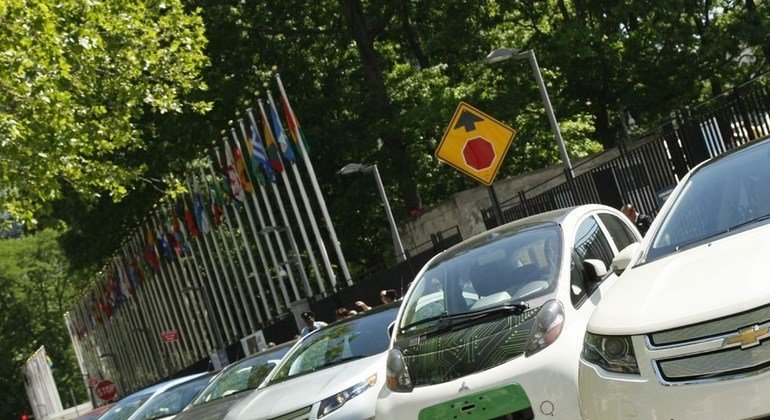Road safety boosted by new UN fix for ‘pedal bug’


Together with vehicle manufacturers and governments, UN Working Group Addressing the problem of advanced driving technology has passed a new regulation aimed at preventing sudden, unwanted acceleration by using technology that can detect objects both in front and in front of it. behind the car.
Tokyo driver
Data from Asia and Europe shows that older drivers tend to make this dangerous mistake more often. In Japan, they are eight times more likely to mistakenly step on the gas pedal than other generations, prompting Tokyo to propose a draft United Nations regulation to address the problem.
UNECE – the UN agency with overall responsibility for road safety regulations worldwide – notes that there are likely to be more similar accidents in the future, as the number of people aged 65 and over worldwide is expected to double by 2050.
Transmission problem
For example, in Japan, the number of drivers over 75 years old is expected to increase from 4% in 2009 to more than 9% next year.
The UN agency also warned that the increase in sales of cars with automatic transmissions globally is another factor that could be contributing to more accidents caused by pedal failures.
This review is based on accident data from the UK which shows that seven out of eight “misplaced pedal” incidents involved automatic vehicles.
Therefore, the new UN regulations will only apply to automatic passenger vehicles. It is expected to take effect in June 2025, although this is not a mandatory start date.
Greener brakes for electric vehicles
In a related development, the meeting of the United Nations Working Group on Automated or Autonomous and Connected Vehicles (GRVA) in Geneva also approved new safer and greener braking systems for vehicles. electricity.
Unlike braking systems on vehicles with internal combustion engines – pneumatic or hydraulic, which rely on energy converted from fossil fuels – Electric cars cannot do this efficiently.That is why the council’s experts have tested and approved new braking technology that uses stored electrical energy, which provides an equivalent level of safety, the working group said.
“Several manufacturers are expected to introduce new braking systems that comply with the regulations by the end of 2025,” UNECE said.



